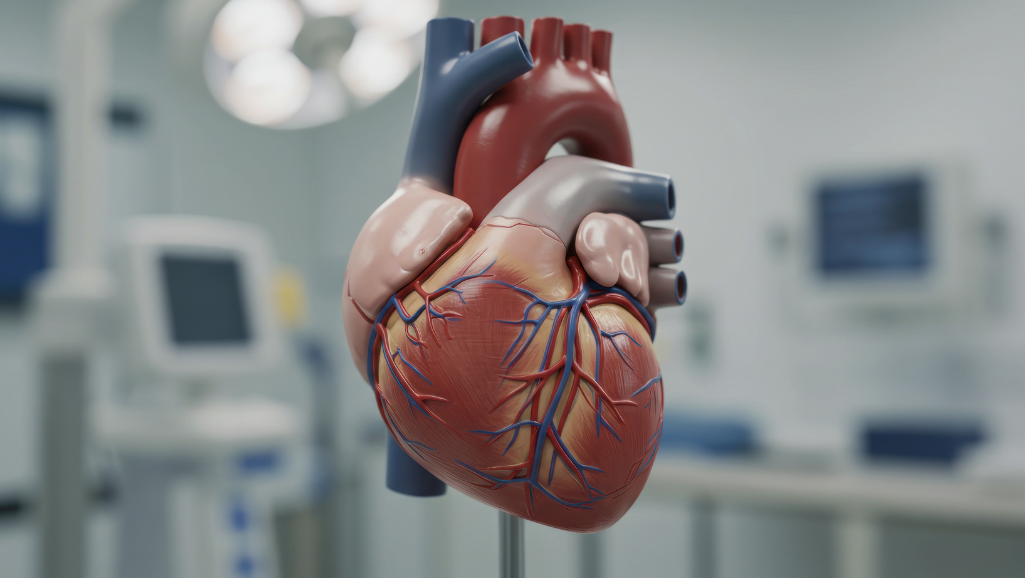Life throws many challenges our way, and how we respond matters. The body reacts to tough situations with a natural fight-or-flight response. But when this reaction lingers too long, it may harm mental health.
Chronic exposure to high-pressure conditions can rewire the brain. Over time, this may increase the risk of disorders like depression or PTSD. Recognizing the signs early helps prevent long-term damage.
Thankfully, proactive strategies exist to regain balance. Small daily habits can break the cycle of overwhelming tension. This journey toward wellness starts with awareness and self-care.
Key Takeaways
Can Stress and Anxiety Cause.
- Prolonged tension affects brain function and emotional well-being.
- Women face higher rates of anxiety disorders than men.
- Nearly 7 million U.S. adults experience Generalized Anxiety Disorder yearly.
- Physical symptoms often accompany persistent worry.
- Healthy routines reduce the impact of chronic strain.
Understanding Stress and Anxiety
Daily pressures shape our biological responses in surprising ways. While short-term tension can sharpen focus, prolonged strain disrupts balance. Recognizing these differences helps manage their effects.
What Is Stress? The Body’s Natural Response
Acute stress acts like an alarm system. Imagine slamming brakes to avoid a collision—your heart races, and hormones like cortisol surge. This reaction saves lives.
Chronic stress, however, lingers. Endless work deadlines or financial struggles keep the body on high alert. Over time, this weakens immunity and strains the heart.
“Stress is the body’s way of rising to a challenge—until the challenge never ends.”
Anxiety: When Worry Becomes Overwhelming
Unlike stress, anxiety persists without clear threats. Disorders like GAD or social anxiety amplify feelings of dread. Physical symptoms—sweating, digestive issues—often follow.
Women face higher rates of these types of disorders. ADAA data shows they’re twice as likely to develop generalized anxiety. Cortisol imbalances from prolonged worry further disrupt health.
- Acute stress: A traffic jam or job interview.
- Chronic stress: Caregiving for years without relief.
- Anxiety disorders: PTSD, OCD, or panic attacks.
Can Stress and Anxiety Cause Long-Term Mental Health Issues?
Neuroscience reveals how prolonged tension reshapes our mental landscape. When the body stays in high-alert mode, it triggers changes that extend far beyond temporary discomfort. Left unchecked, these shifts may fuel lasting mental health challenges.
The Science Behind Chronic Stress and the Brain
Constant strain floods the brain with cortisol, a hormone linked to the hippocampus. Over time, this overload damages memory cells and weakens emotional regulation. Studies tie this process to higher depression risks.
Trauma survivors often face another layer—PTSD. Flashbacks and hyperarousal rewire neural pathways, making calm moments feel rare. Early intervention can slow or even reverse this damage.
“Your mind is resilient—early intervention matters.”
Anxiety Disorders: From Temporary to Persistent
What starts as occasional worry can spiral into debilitating disorders. Generalized Anxiety Disorder affects 6.8 million U.S. adults yearly, while 12.1% grapple with social anxiety.
Without support, mild symptoms escalate. Panic attacks or phobias may emerge, alongside risky coping mechanisms like substance abuse. The good news? Treatment breaks this cycle.
- Cortisol overload: Shrinks the hippocampus, impairing memory.
- Untreated anxiety: Evolves into phobias or panic disorders.
- Statistics: 1 in 5 adults with anxiety develop comorbid depression.
Symptoms of Stress and Anxiety
Your body speaks volumes—listen when it whispers warnings. Physical discomfort, emotional shifts, and behavioral changes often signal deeper struggles. Recognizing these symptoms early empowers you to take control.
Physical Warning Signs You Shouldn’t Ignore
Chest pain or rapid breathing may feel like a heart attack. Dizziness, high blood pressure, and nausea are common too. Lesser-known clues include jaw clenching and frequent infections.
Digestive issues like IBS flare-ups often link to tension. Persistent headaches or muscle aches deserve attention. Your health hinges on spotting these red flags.
Emotional and Cognitive Red Flags
Feeling overwhelmed or irritable? Mental fog and mood swings disrupt daily life. These emotional symptoms erode joy and focus.
Panic attacks may strike without warning. Restlessness or constant dread signals deeper turmoil. Emotional exhaustion is a silent thief.
Behavioral Changes That Signal Trouble
Procrastination or social isolation often go unnoticed. Substance abuse—like relying on alcohol—masks pain temporarily. Workplace absenteeism reveals chronic strain.
“Small shifts in behavior are whispers—listen before they become screams.”
- Physical: Insomnia, weakened immunity, stress rashes.
- Emotional: Irritability, inability to focus, mood swings.
- Behavioral: Neglecting responsibilities, overeating, withdrawal.
Spotting these signs is step one. Reclaiming balance starts today.
The Link Between Chronic Stress and Serious Conditions
The human body wasn’t built for endless pressure—yet modern life demands it. When tension becomes a constant companion, it leaves fingerprints on both mind and body. Research reveals how unchecked strain evolves into tangible health crises.
How Prolonged Stress Rewires Your Mental Health
Cortisol, the primary stress hormone, reshapes brain structures with prolonged exposure. Studies show it shrinks the hippocampus, impairing memory and emotional control. This change explains why many with chronic strain develop depression.
Inflammation is another silent culprit. Stress-triggered cytokines worsen conditions like psoriasis or arthritis. They also accelerate plaque buildup in arteries, raising heart disease risk.
“Neurons that fire together wire together—choose your stressors wisely.”
From Anxiety to Depression: A Slippery Slope
Untreated anxiety often cascades into darker territories. The ADAA reports 33% wait a decade before seeking help. By then, hormonal imbalances may already disrupt sleep, digestion, and immunity.
Consider these connections:
- Blood pressure spikes during panic attacks strain cardiovascular systems
- Stress-induced inflammation reduces vaccine effectiveness by 30%
- IBS symptoms flare when cortisol disrupts gut-brain communication
Your body remembers every tense moment. But with proper management techniques, it can also learn resilience. Small steps today prevent bigger struggles tomorrow.
How Your Body Pays the Price
Your body keeps score—every moment of tension leaves a mark. From your *heart* to your gut, prolonged strain triggers *changes* that demand attention. Ignoring these signals risks long-term damage to your *health*.
Cardiovascular Risks: Heart Disease and High Blood Pressure
Adrenaline surges force your *heart* to work overtime. Over time, this may lead to arrhythmias or hardened arteries. Research links chronic strain to a 40% higher *risk* of hypertension.
Spikes in *blood pressure* during panic attacks are especially dangerous. They weaken vessel walls, inviting plaque buildup. Simple fixes like deep breathing can ease this burden.
“A racing *heart* today plants seeds for tomorrow’s struggles—pause and breathe.”
Gut Health and Immunity Under Siege
Your gut acts as a second brain, reacting to cortisol floods. Imbalances here trigger ulcers, GERD, or IBS flare-ups. Nearly 70% of serotonin production happens in this delicate system.
Chronic strain also slows metabolism, encouraging weight gain. Poor sleep and sugary cravings compound the issue. Protect your *health* with probiotic foods and mindful movement.
- Heart strain: Adrenaline disrupts natural rhythms.
- Gut chaos: Cortisol kills beneficial bacteria.
- Metabolic slowdown: Stress hormones store fat.
Your *body* whispers before it screams. Listen, act, and reclaim balance—one mindful *day* at a time.
Proven Strategies to Manage Stress and Anxiety
Regaining control starts with simple, effective strategies. Small changes create big shifts in mental well-being. The right techniques can transform overwhelming moments into manageable ones.
Mindfulness and Breathing Techniques
The 4-7-8 method works wonders during panic attacks. Inhale for 4 seconds, hold for 7, exhale for 8. This resets the nervous system quickly.
Yoga blends movement with breath work. Just 15 minutes daily lowers cortisol levels significantly. Guided meditation apps offer portable calm for busy lives.
“Breathe deeply—peace follows.”
Lifestyle Changes That Make a Difference
Micro-habits build resilience. A short walk after meals boosts endorphins. Gratitude journaling before bed shifts focus to positivity.
Herbal teas like chamomile soothe frayed nerves. Limiting screen time before sleep improves rest quality. These small tweaks compound over time.
When to Seek Professional Help
Some signs demand expert help. Suicidal thoughts, weeks of insomnia, or inability to function require immediate attention. Therapy isn’t weakness—it’s wisdom.
Cognitive Behavioral Therapy (CBT) effectively treats PTSD and panic disorders. Support groups provide community understanding. Professional guidance offers tailored solutions.
- Instant calm: 4-7-8 breathing during crises
- Daily habits: Walks, journaling, herbal remedies
- Red flags: Prolonged distress needs expert care
Breaking the Cycle: Prevention Tips
Resilience isn’t built overnight—it’s crafted through daily choices that add up. Proactive strategies turn overwhelming situations into manageable moments. Start small, stay consistent, and watch your mental armor strengthen.
Building Resilience Against Daily Stressors
“Stress inoculation” works like a vaccine for your mind. Gradually face challenges—start with a crowded grocery store if social activities trigger tension. Each small win builds confidence.
Try these changes:
- Digital detox: Unplug for 30 minutes daily to reset.
- Meal prep: Reduce decision fatigue with planned meals.
- Movement breaks: Stretch or walk every 2 hours at your job.
“You can’t calm the storm, but you can learn to dance in the rain.”
Creating a Support System That Works
Strong social ties slash stress-related illness risks by 50%. Lean on family, join a book club, or volunteer—connection fuels resilience.
Set boundaries:
- Say “no” to overtime when your plate is full.
- Schedule weekly calls with a trusted friend.
- Use apps like Meetup to find local groups.
Make self-care a non-negotiable part of your life. Tiny steps today forge unshakable strength tomorrow.
Conclusion
Spotting early signs of strain protects your mental health. Tiny daily actions create lasting change. Whether it’s mindful breathing or reaching out for help, each step matters.
Hope lives in small moments. The 988 Crisis Lifeline offers immediate support. Meditation apps like Headspace provide quick relief. Local therapists tailor strategies to your needs.
Your body thrives with care. Share your journey—it might light someone else’s path. Today’s effort builds tomorrow’s resilience.
“Every breath is a chance to reset—your journey to calm starts now.”











